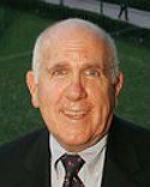
Elliott Sclar is the Director of CSUD and Professor of Urban Planning and International Affairs at Columbia University. He holds senior appointments in the Graduate School of Architecture, Planning, and Preservation and the School of International and Public Affairs and is an active participant in the work of the Earth Institute at Columbia University (EI). Sclar is a member of the Advisory Board of the Global Research Network on Human Settlements (HS-NET), UN-HABITAT, and a member of the World Economic Forum's Global Agenda Council on Urban Management. Sclar was Co-coordinator of the Taskforce on Improving the Lives of Slum Dwellers. It is one of the ten taskforces set up by the UN Millennium Project to help guide the implementation of the United Nation's Millennium Development Goals. The Taskforce's book length report (2005): A Home in the City,(PDF Download), is available on the UN Millennium Project website and from Earthscan.
As a professional economist, Professor Sclar has written extensively about the strengths and limitations of markets as mechanisms for effective public policy implementation. Sclar's book You Don't Always Get What You Pay For: The Economics of Privatization (2000), a critique of over reliance on market mechanisms, has won two major academic prizes: the Louis Brownlow Award for the Best Book of 2000 from the National Academy of Public Administration and the 2001 Charles Levine Prize from the International Political Science Association for a major contribution to the public policy literature. It is a definitive work in the field.
In recent years Sclar has been a leading figure in a scholarly movement to reconnect the work of population health experts and urban planners in creating healthier cities. (See his recent series of articles in The Lancet, American Journal of Public Health, the Journal of Urban Health and a report published by the Transportation Research Board Institute of Medicine) (PDF Download). One of the main challenges he sees is the need to begin to develop more precise measurements of built environment impacts on population health. . In November 2007 he received the Humanitarian of the Year Award from the International Society for Urban Health in recognition of his work in this field.